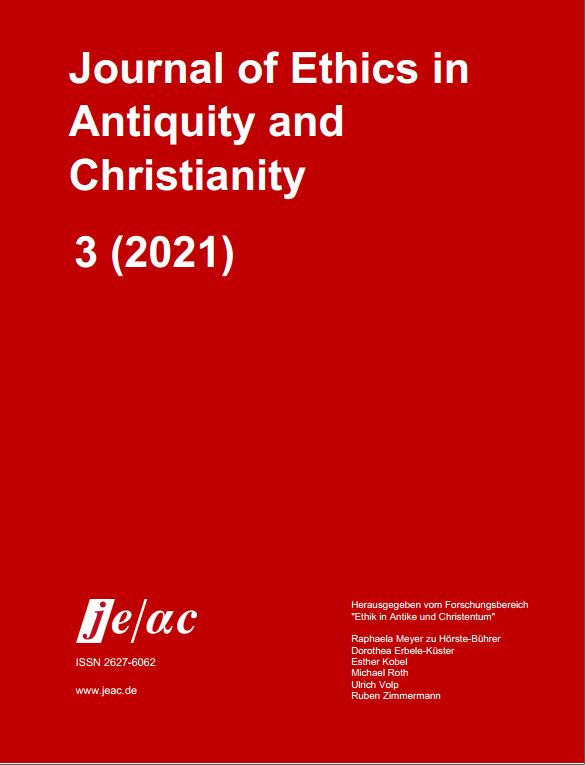Love’s Limits: Love Of Neighbor In The First Three Christian Centuries
Hauptsächlicher Artikelinhalt
Abstract
Among Hellenistic Jews, the saying “love your neighbor as yourself” (Lev 19:18) summarized ?????????? (justice toward others) as enumerated in Mosaic law. Citations of the passage by Paul and in the Gospels of Mark and Matthew contributed to this wider discussion in the context of debates about the implications of neighbor love for Jesus-following ?????? (faith, loyalty, or trust). Second-century Christians — including Clement of Alexandria, who cited the passage repeatedly — pulled neighbor love into another conversation about the Christian “life in common” (????????) and in response to the Greek philosophical maxim “friends should possess all things in common.” None of these writers, however, explicitly employed the saying to argue that God’s love demands equal and compassionate treatment of all persons, ontologically and practically, although their words have been and can be interpreted in this way. Inspired by recent events, this essay employs biblical and historical analysis to resist destructive myths of progress that employ the love commandment as an alibi for disavowed hatred and arrogance.

